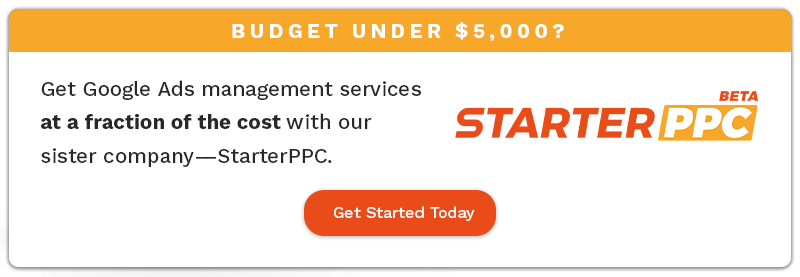In the world of digital marketing, the success of your ad campaigns hinges on the effectiveness of your keyword analysis. Today, we’re diving into a case study that illustrates the power of meticulous keyword analysis and how it can transform your campaign performance, ensuring that every dollar spent is an investment toward growth.
Understanding Keyword Match Types
Our journey begins with a unique client, a farm offering exotic fruit subscriptions and gift boxes. Initially, the campaign utilized broad match keywords, casting a wide net in hopes of capturing a large audience. However, this approach often led to inefficiency, as many users were simply looking for fruit images with no intent to purchase.
The evolution of the campaign saw a transition from broad to phrase match, and ultimately to exact match keywords. This progression was driven by the need to target users with a clear intent to buy—those with their wallets in hand, ready to purchase exotic fruits online.
The Shift to Exact Match Keywords
By focusing on exact match keywords, we aimed to rein in the algorithm and prevent it from squandering the budget on irrelevant searches. Exact match allowed us to target search terms nearly identical to our chosen keywords, significantly reducing wasted spend.

Analyzing Keyword Performance
When analyzing the campaign’s performance over the last 30 days, we observed that the keyword ‘exotic fruits delivery’ had the highest spend and a click-through rate (CTR) of 17%. This was a clear indicator of high purchase intent, as the term suggests a user’s desire to have exotic fruits delivered to their doorstep.
In contrast, ‘fresh exotic fruits’ had a lower CTR of 5%, suggesting a slightly lower purchase intent. Despite this, the keyword ‘fresh’ was crucial, as it implied a user’s interest in purchasing, not just browsing for information.
Conversion Rates and Return on Ad Spend (ROAS)
In digital marketing, especially for products like exotic fruits, interpreting conversion rates demands a nuanced approach. For instance, while the conversion rate for ‘exotic fruits delivery’ is 0.72% and ‘fresh exotic fruits’ 0.5% appears low, this doesn’t paint the whole picture.
Customers often interact with multiple ads, such as Search and Shopping campaigns. These interactions skew the conversion attribution, typically favoring shopping campaigns. Therefore, relying solely on these segmented rates can mislead when assessing a business model’s success.
A holistic view across all campaigns offers a truer picture. Moreover, integrating Google Analytics into your analysis provides deeper insights, bypassing the limitations of Google’s attribution model and ensuring a more accurate evaluation of your marketing strategies.
Interestingly, the ROAS for ‘exotic fruits delivery’ was lower than that for ‘fresh exotic fruits’, despite the higher cost per click (CPC) associated with the former. This discrepancy highlighted the need for further investigation into the campaign’s keyword strategy.

The Importance of Search Term Analysis
A deep dive into the search terms revealed that the algorithm was bidding on terms like ‘exotic fruits’ without the qualifier ‘fresh’, leading to significant spend without conversions. This was a prime example of the algorithm’s tendency to prioritize market size over relevance, resulting in wasted budget.
Making Strategic Adjustments
After evaluating the Click Share metric, which indicates the percentage of total search volume captured by our ads, we decided to pause the keyword ‘fresh exotic fruits’. This keyword had a vast market but a lower purchase intent, and pausing it would allow us to reallocate the budget to keywords with higher intent and potentially higher ROAS.
The Power of Specificity
Keywords like ‘passion fruit delivery’ demonstrated the power of specificity, with a higher ROAS and clear user intent to purchase. These insights underscore the importance of targeting specific, high-intent keywords within ad campaigns.

The Art of Keyword Analysis
Keyword analysis is both an art and a science. It requires a balance of data-driven decisions and educated guesswork. By pausing underperforming keywords and reallocating budget to those with higher purchase intent, we can optimize campaign performance and ensure that our ad spend is not just an expense but an investment in growth.
If you’re looking to enhance your business’s online presence without exhausting your budget, consider partnering with a team of Google Ads experts at StarterPPC, who specialize in managing accounts with modest budgets. With the right strategies and a focus on efficiency, even small ad budgets can compete with larger players in the digital arena.
Remember, the key to successful ad campaigns lies in continuous learning, testing, and refining your approach to keyword analysis. Stay tuned for more insights and strategies to help you master the art of keyword analysis and drive your campaign performance to new heights.
Author
Patience is the former director of marketing and communications for Solutions 8. A phenomenal content writer, copywriter, editor, and marketer, she has played a prominent role in helping Solutions 8 become an authority in the Google Ads space. Patience is also the co-author of The Ultimate Guide to Choosing the Best Google Ads Agency and You vs Google.
 Patience Hurlburt-Lawton
Patience Hurlburt-Lawton


